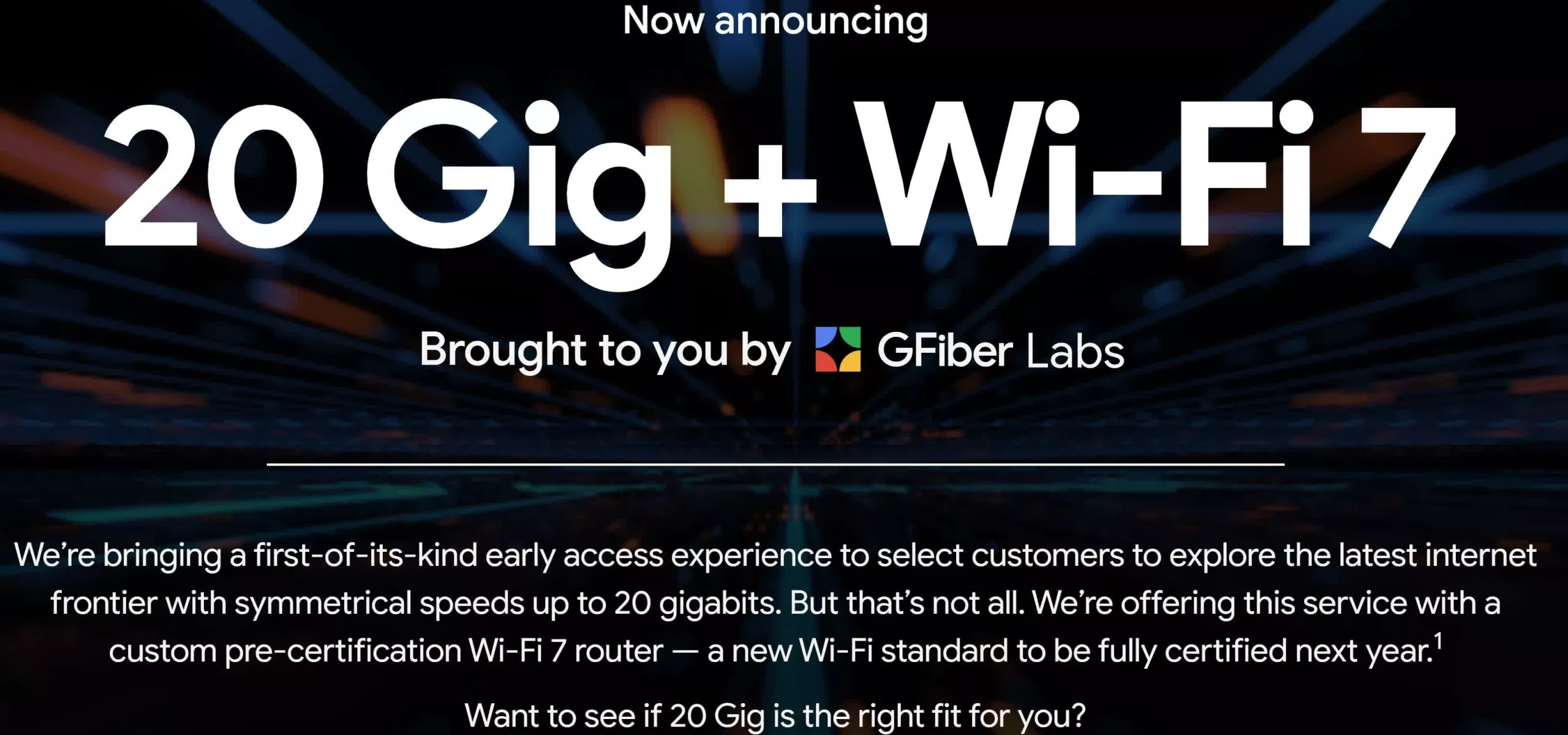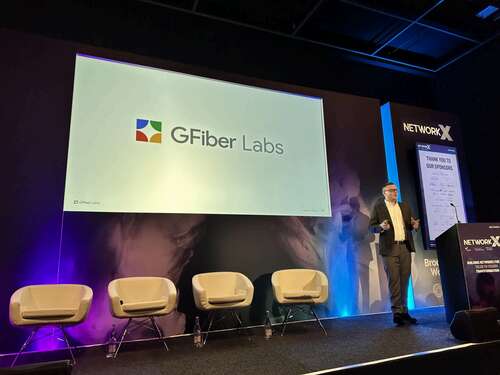What just happened? Google has tested 20 Gig internet internally and with institutions for at least a year. The next phase coming from the company’s innovation incubator is a trial with select residential users, just as tech companies begin to launch the first Wi-Fi 7 routers.
Google will begin offering 20 Gig internet to some Google Fiber customers in select areas before the end of the year. The company didn’t specify which locations will receive the trial, but those interested can apply and check availability on the website for GFiber Labs, Google’s innovation incubator. More details will emerge in the coming weeks.
To help them reach the blazing advertised speed, the company will send chosen applicants its new custom Wi-Fi 7 router. Google credits Nokia’s 25G PON technology with enabling 20 Gig internet by bringing users beyond the so-called 10 Gig barrier.

Initial 20 Gig testing began last year at the Kansas City University of Missouri’s School of Science and Engineering, which used the massive bandwidth to operate large data sets and virtual reality applications. In May of this year, Google opened the trial to certain businesses, educational institutions, and non-profits in Raleigh-Durham, Huntsville, Salt Lake City, and Austin.
The company unveiled the GFiber Labs innovation hub late last month to run the 20 Gig tests and push further. Google hopes to eventually reach 100 Gig and possibly beyond.
Google Fiber is only available in a few areas throughout the US, but those locations have access to extremely fast (though not 20 Gig) internet. The search giant offers 8 Gig connections in parts of West Des Moines for $150 a month and a $125 5 Gig service throughout that city, Kansas City, and Salt Lake City.

A critical part of the 20 Gig push, Wi-Fi 7 routers have only recently hit the market. The official standards for the new protocol won’t be finalized until next year, but a few companies, including Google, are releasing pre-certification models.
One of the first Wi-Fi 7 routers came from TP-Link late last year. Asus revealed a Wi-Fi 7 gaming router at Gamescom in August, and Amazon launched a Wi-Fi 7 successor to its Eero series last month. Linksys introduced its first Wi-Fi 7 mesh router this week.
These devices are mostly for future-proofing, as, understandably, few devices currently support Wi-Fi 7. Intel predicts that compatible PCs will become more common next year in time for the final specifications.

